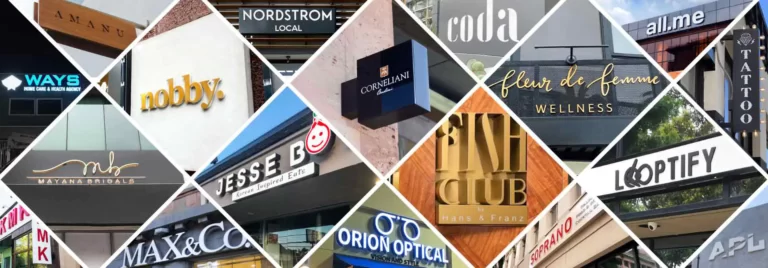- E-mail: chefabdul@restroconsultants.com
- Mobile: +91 821 4524271
- Landline: +91 821 3500612/3500613
Restaurant Branding
One of the most effective ways to build customer loyalty is to create a recognizable and memorable restaurant brand. To have that “je ne sais quoi” that keeps customers coming back and motivates them to recommend your restaurant, develop a timeless brand identity that resonates with your target audience. The restaurant branding ideas below will help you get started.

15 Best Restaurant Branding Ideas to Implement Right Now
1. Start with a strong mission statement
The first step in developing a restaurant branding strategy is crafting a mission statement that will act as your guiding compass from now on. To do that, you have to answer some questions:
- What do we do?
- Why do we do it?
- How do we do it?
- What do we hope to accomplish?
- What is our USP (unique selling point)?
After you’ve answered all these questions, please keep them in your eyesight. Reread them whenever you advance your brand identity to ensure you’re staying true to who you are.
2. Define your target audience
A natural step following the mission statement is establishing who your customers will be. This depends on factors like location, menu, design, and ambiance. If your restaurant is located next to a university campus and your serve affordable food and drinks, it’s clear most of your customers will be university students. Alternatively, suppose you’ve opened your restaurant in a wealthier neighborhood next to corporate office buildings. In that case, you might become the go-to place for classy business lunches. Defining your target audience will help you learn how to communicate with your customers. It will also reveal important insight into improving customer service and avoiding negative reviews.
3. Work on brand positioning
Brand positioning refers to positioning your restaurant in your customer’s minds. More precisely, it’s about your strategy to differentiate your brand. It sets your brand with other similar ones (in this case, other restaurants) in the minds of your target audience. Your positioning in the restaurant market should be based on the menu you’re offering, the price, your restaurant location, and how you promote your business. Determine who your competitors are and what your strengths and weaknesses are compared to theirs.
4. Decide how you want to present your restaurant to the world
Beyond things like menu prices and location stands a restaurant’s brand voice, i.e., what kind of restaurant you will be about your customers. Will you be fun and quirky or severe and elegant? You will learn how to interact with your target audience live, on your website, and social media based on your chosen rates. You can create a stunning website with Magento restaurant themes. Ultimately, these restaurant branding ideas will also seep into your physical branding.
5. Customize the look of your restaurant
From logo to packaging, decor, colors, lettering, signage, and much more, your restaurant’s look should form a cohesive whole with your mission statement and brand voice. If you want to open a funky bistro, you will probably use bold colors and fonts. At the same time, a classy restaurant will benefit more from dark, muted colors and typography. If you also offer food pickup and delivery, put some time and effort into designing the packaging and printed materials. They should include your logo, brand colors, stickers with your social media profiles, the website where people can place orders, and your contact information.
6. Personalize your menu to fit your brand
If your restaurant has a specific theme or caters to a young, fun audience, you can bring some of that magic into your menu. Integrate puns into menu descriptions, create unique names for menu items, and design your menu to reflect your restaurant’s theme. For example, a Game of Thrones-themed restaurant could serve menu items such as Mother of Dragons spicy wings, Winterfell winter greens, or Red Wedding cake. A personalized name can be enough to excite your guests and have them coming back for more.
7. Keep your branding consistent
Consistency is one of the most critical aspects of successful restaurant branding. You have to give off the same vibe both online and offline. Your website colors should match those of your brick-and-mortar location, and your social media has to contain the exact imprint. Additionally, if you’re considering advertising, keep it on par with your branding. The same thing goes for offline marketing. Any material you print, from flyers to posters or business cards, has to feature your brand. If you don’t want to give your wait staff proper uniforms, you can still ask them to wear t-shirts in the brand’s colors or personalized t-shirts that you make featuring your logo.
8. Come up with a catchy slogan
What comes to mind when you hear the phrase “Eat Fresh”? What about “I’m Lovin’ It” or “Finger-Lickin’ Good”? It’s unlikely you haven’t answered with Subway, McDonald’s, and KFC. That’s because these slogans have become part of popular culture. While this is not mandatory for a restaurant’s success, it is valuable to any restaurant branding ideas list. Some of the most successful restaurant chains out there have recognizable slogans. If you can create one for your restaurant, it’s more likely to stick in people’s heads and be associated with your brand forever.
9. Become active in the community
One of the most creative branding ideas for restaurants involves going out into the community and participating in different activities. For instance, you could cater sporting events or donate food for charity events. Partner with other local businesses for mutual promotion and become an unforgettable presence in the community.
10. Offer promotions that align with your brand identity
The customer experience at your restaurant wouldn’t be complete without some unique restaurant promotion ideas that speak of your brand. What do I mean by that? Well, if you’re a regular hang-out spot for after-work drinks, happy hour promotions are a no-brainer. Consider meal bundles and discounted kid menus if you're a family-friendly restaurant. Take what makes you one of a kind and capitalize on it by giving customers what they crave most: discounts and special offers.
11. Take representative food photos
Whether on your website or social media, never underestimate the power of images to make a lasting impression on customers. Regarding restaurant branding material, photos of your food must leave customers craving the dish. When photographing your food (which I recommend you do instead of using stock images), try to stick to the same style and color palette to create a cohesive vision for your brand.
12. Respond to reviews in the same style
Inevitably, customers will review your restaurant on various online platforms like Yelp or TripAdvisor. How you respond to reviews, particularly negative ones, will set the tone for your relationship with your online and offline customers. That said, it’s not a great idea to let different staff members reply to reviews because each one will have its unique style. Ideally, task one person with responding to all reviews in a way that best represents your restaurant brand.
Conclusion
Given the number and variety of restaurants nowadays, restaurant branding is necessary to stand out. Don’t assume that only big restaurant chains need or can benefit from branding. Small restaurants should also invest time and effort into building a brand that stands the test of time. Using the restaurant branding ideas above, you, too, can start creating a memorable presence for your restaurant.
